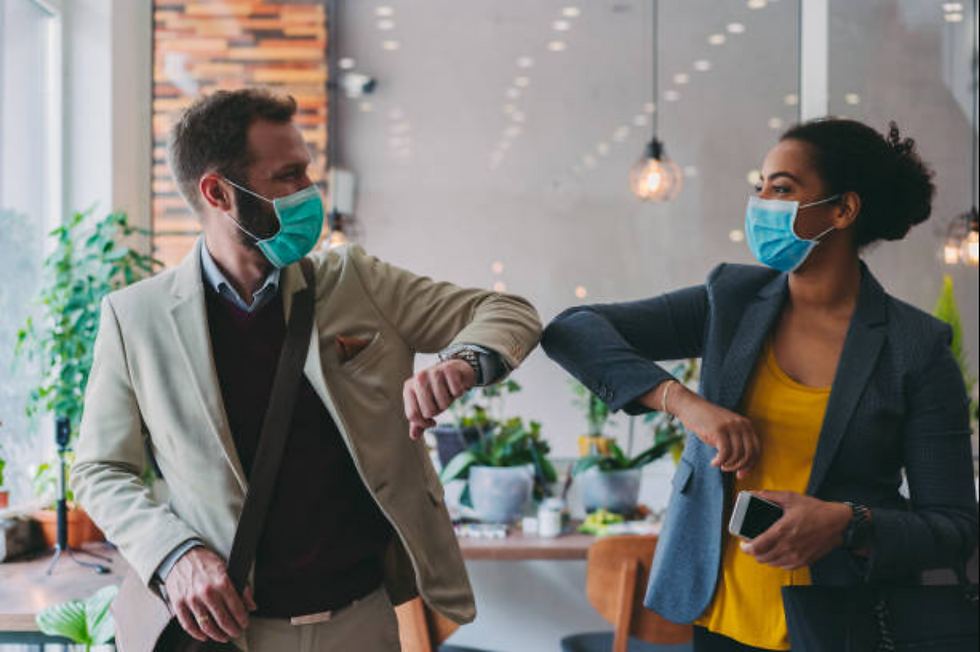So we’re just coming out of a global pandemic. Now what?
- stefanyallongo
- Sep 8, 2022
- 3 min read
Updated: May 13, 2024
If you are like most people, you watched with a combination of fear, shock and amazement as the world shut down in 2020 because of the Covid pandemic. After 2+ years, how are you doing?

Covid-19 Global Pandemic
On March 11, 2020, after following the trail of the Corona virus worldwide, the World Health Organization (WHO) declared Covid-19 a global pandemic (CDC.org). What followed in rapid succession was the shutdown of airports, schools, restaurants, and eventually all non-essential businesses. The world is introduced to terms such as “social-distancing.” Masks and social isolation become the new norm.
While we all did what we had to do to stay safe during the crisis, no one could have imagined the extent of the damage that would be caused by the Covid-19 pandemic. The duration of time that we spent on “lockdown” and the time it took for our country to return to some semblance of normalcy has wreaked havoc on ALL of our mental health.

Coming Out of Hiding
Over two years later, as we begin to slowly come out of hiding, we can finally start to look back and assess some of the damage. Data released from the Adolescent Behaviors and Experiences Survey (ABES) showed an increase in feelings of sadness and hopelessness among high school aged adolescents, a rise in emotional abuse in the home, and an increase in stress, anxiety, and suicide (PsychologyToday). Without a doubt, the Covid pandemic brought with it additional stressors that we may continue to feel for a long time.
However, after the war stories inevitably come the resilience stories. Jonathan Larson said, “The opposite of war isn't peace, it's creation.” The creation of new hopes, new goals and new dreams born out of a pandemic that hopefully gave us new appreciation for the things in life we so often take for granted, like time together, or just time.

COVID and Mental Health
Post Covid-19, saw an increase in those seeking professional help for the first time. According to the American Psychological Association (APA), more than 84% of mental health professionals who treat anxiety disorders, more than 72% of mental health professionals who treat depressive disorders and more than 60% of practitioners who treat other mental disorders such as obsessive-compulsive and substance-use disorders said they have seen an increase in demand for services.
As a result of these increased demands, we’ve seen less stigmatization regarding seeking mental health services and more advocacy for the use of such services (APA.org). The APA also increased its advocacy for continued flexibility in insurance coverage of telehealth services that enabled patients from underserved communities, such as rural areas and communities of color, to access these services, often for the first time.

Relationships During Covid 19
It seems that post Covid, people decided to address their (sometimes longstanding) mental health and marital issues. Partnerships were tested left and right from job losses, financial worries, illness, prevention of illness and lockdown isolation. Out of that came a rise (31%) of people seeking help to protect their relationships. (Psychiatry.org). According to an article in the New York Times, “the pandemic has functioned like a magnifying glass for vulnerabilities.” Being in close quarters under confinement allowed us to see the relationships in our lives that were not working and gave us the time and (insurance) money to do something about it.
Post pandemic, it seems as if its we’re finally recognizing the prevalence of mental health issues, and how those issues are further impacted by crisis, and how we should treat our mental health as importantly as we treat our physical well-being.

Mental Health IS Physical Health
Post pandemic it’s great to be able to go out for a walk, go to a restaurant or show, and meet our friends for lunch. It’s also great to look at our mental health and do a mental health check. How are we? Really? And how are those relationships in our lives?
Post pandemic, we learned what doesn’t kill us can certainly makes us stronger and we discovered that we have the unique ability to rewrite our stories, this time with help. Post pandemic, we learned, there’s no shame in our game! And no shame in seeking help, and recognizing we can’t do life or healing alone, and we were never meant to!










































Comments